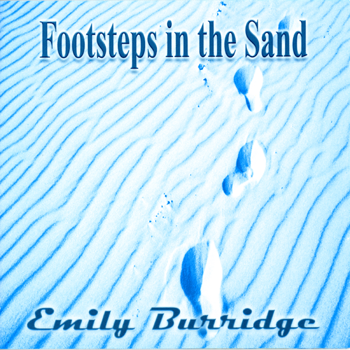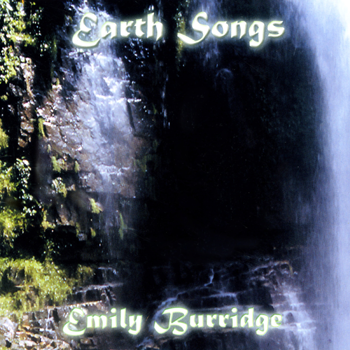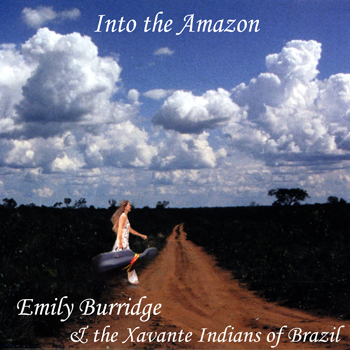Reviews
Production notes and lyrics
An international production which she commenced recording in Fortaleza, Brazil and completed in studios in Austria and England.
Album produced by Emily, she plays the cello,sings, composed with the keyboard synthesized instrumentation and wrote the lyrics.
Featuring eminent Brazilian 12 string guitarist, Manasés de Souza, Brazilian percussionist Milton Fiori and the Austrian guitarist and producer Gandalf.
Manasses and Milton are featured playing on "Kame", "Candle in the Sand", "Dia dos Mortos" - (Day of the Dead) and "Distant Shore" (instrumental version of "Candle in the Sand")
Austrian producer & guitarist Gandalf plays electric guitar on "Dolphin Love" and acoustic guitar on "Black Madonna"
Jody Linscott plays percussion on "Prayer for the Fishermen"
"Candle in the Sand" Relates to the annual Birthday celebrations of Yemenja (Goddess of the Sea) when the custom of making offerings in the sea in the form of flowers takes place.
"We sat and watched,
The Sea drew the line
Cool waters, memories in time.
The shifting sands, like an hourglass,
How quickly this time has passed.
We tossed a flower into the sea
We lit a candle in the sand,
The flame that burned, still speaks to me
Brings memories of that land"
The third track relates to the ‘Day of the Dead’ festival in Brazil. Integrated within the music is a recording of a procession made on the Day of the Dead. The people in the procession ecstatically shout out the names of their patron saints as they converge on the town square after a day of offering prayers at all the sacred sites in the town.
Black MadonnaThe lyrics of are a 15th century Latin verse when the Pope decreed that images of the Black Madonna should be removed from public veneration. The places where the images were hidden subsequently became pilgrimage places. The Black Madonna is the patron Saint of Brazil.
"Dolphin Love" is a pop song and in the ‘90’s a new departure for Emily. With sequenced rhythms and featured electric guitar performed by Gandalf.
"Dolphin Love, Hearts of Gold, Songs of the Sea, Pure Joy
Can you hear them, can you feel them, can you see them, swimming free
Dolphin Love, Hearts of Gold, Songs of the Sea, Pure Joy
But you know they've gone unheard.
Precious lives have been disturbed
Can you hear them, Can you feel them, Can you see them swimming free.
Dolphin Love, Hearts of Gold, Songs of the Sea, Pure Joy.
Sing, dance, See, Feel Free"
In a place called Almofala, which local people referred to as the end of the line" Emily encountered the Tremembe Indians who lived in the sand dunes set back from the sea. The Chief and his daughter decided to sing some of their traditional songs. Emily recorded them and three of the Tremembe songs form the base for her tracks "Rainmaker", "Agua de Menina" and "Prayer for the Fishermen". These tracks are an audible response to her experience with the Tremembe Indians and the isolated place in which they live.
"Prayer for the Fishermen""This is a prayer for the fishermen,
For those people out there,
At that place on the end of the line,
Where their world is just sea and sky.
Our boat is led through dark waters
Our tears are of the Sea"
Emily's musical research in the northeast of Brazil led her to be introduced to two music schools for children. The musical activities offer an alternative to working in the cane plantations. She was invited to give music workshops and on one occasion was amazed by the singing voice of a boy named Eduan Rodrigues de Almeida. Inviting him to sing his favourite song she recorded him singing "A Margem do Igarape" in the forest outside the school..
"Realised Dream" commences with the recording of Eduan and the lyrics for this song describe the experience of meeting Eduan and hearing him sing his song in the peace of the local forest.
"Realised Dream" part 2 commences with percussion made and performed by the children of the Casa Grande Foundation of Nova Olinda. Emily accompanies this recording with solo 'cello playing an arrangement of the theme of the song performed by Eduan.
Realised Dream(part 1)"I remember you, as though it were yesterday,
I have your picture on the wall.
Your young body so weathered
Yet resisting the storm.
I remember you as though it were yesterday,
Your song rang out in the wood.
Enraptured I listened,
So silent, I stood.
I remember you as though it were yesterday,
I will always think of you.
As your song keeps on playing
So will your dreams come true"
"Out of the Blue" is a solo 'cello piece with recordings of waves crashing on a distant shore. "Distant Shore" is an instrumental version of "Candle in the Sand"





